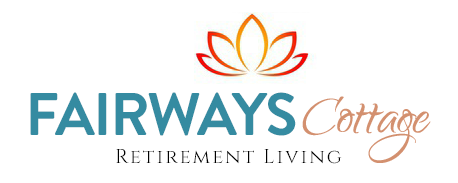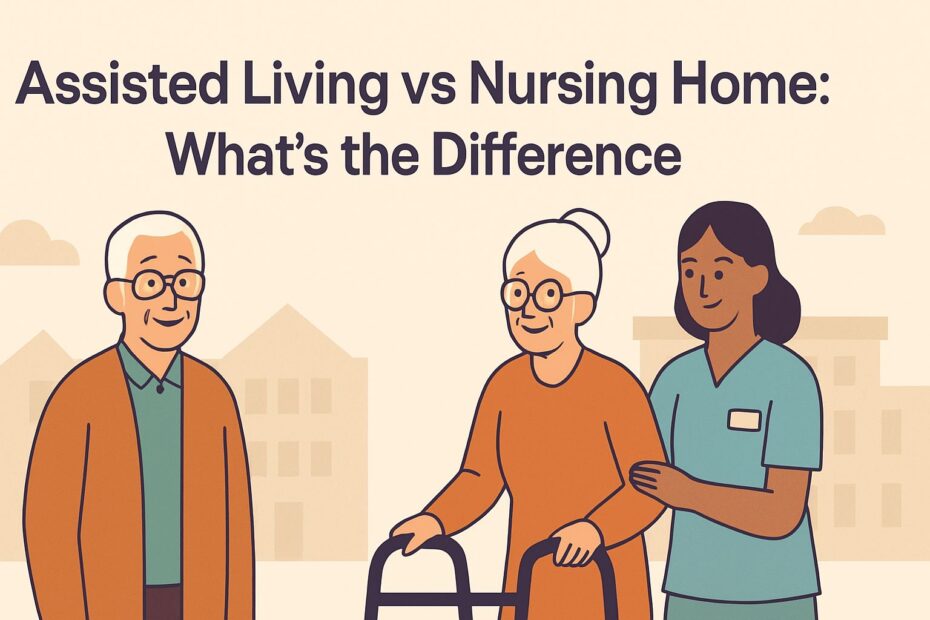If you’re standing at the crossroads, wondering whether assisted living or a nursing home is the better fit for your loved one, please know—you’re not alone. Every family comes to this moment with a heavy heart, a mind full of questions, and a soul that only wants to do what’s best.
Choosing the right kind of care isn’t about making a “perfect” decision. It’s more about finding a place where your loved one can feel safe, respected, and supported in the ways they truly need. The trouble is, from the outside, assisted living facilities and nursing homes can seem just almost the same. But once you look a little closer, the differences become clear—and those differences can mean everything for your loved one’s comfort, happiness, and dignity.
Today, I’m going to walk you through it gently and carefully, just as I would for my own family. Let’s take this one step at a time—because when you understand the differences, you’ll feel a whole lot more confident about the next step forward.
What Is Assisted Living?
Think of assisted living as a helping hand that’s there when you need it—and respectfully steps back when you don’t. It’s a beautiful option for seniors who are mostly independent but could use a little extra support to keep living life on their own terms.
In an assisted living community, you’re not stuck in a hospital-like setting. You’re living in your own apartment or suite, with your own furniture, your own pictures on the wall, your own daily rhythm. Staff are there 24/7 if you need them, but they aren’t hovering. They’re there to make life easier, not to take it over.
Maybe you need help getting dressed in the morning, remembering your medications, or getting a ride to an activity you love. Maybe you just want someone to check in once a day to make sure everything’s alright. That’s what assisted living is for—providing support with dignity, without stripping away independence.
Communities often offer social events, fitness classes, meals you don’t have to cook, and a whole host of other things that make life lighter and happier. It’s about staying active, staying connected, and staying you—with just enough help to make each day feel manageable and meaningful.
Who is assisted living best suited for?
If your loved one can mostly take care of themselves but struggles with a few daily tasks—or you worry about them being alone too much—assisted living can be a wonderful solution. It’s not about giving up control. It’s about giving back freedom in a safe, supportive way.
What Is a Nursing Home?
Let’s be honest—nobody dreams of moving into a nursing home. But sometimes, it’s exactly what’s needed to keep a loved one safe, cared for, and treated with the dignity they deserve.
A nursing home is a place where medical care isn’t just available—it’s woven into daily life. We’re talking about 24/7 support from trained nurses, aides, and often even doctors, ready to step in at a moment’s notice. It’s not just help with bathing or meals. It’s managing medications, treating chronic illnesses, tending to wounds, and handling the kinds of medical needs that can change hour by hour.
Most nursing home residents don’t just need a little help here and there—they need someone close by, all the time. And that’s okay. Accepting that level of need is not a failure. It’s an act of love to recognize when home care or even assisted living isn’t enough anymore.
The environment in a nursing home is more structured. Meals are scheduled, therapy sessions are arranged, and every day is built around making sure residents get the care they require to live with as much comfort and dignity as possible.
Who is a nursing home best suited for?
It’s the right choice for someone whose health challenges are too much for assisted living. Seniors recovering from a major surgery, living with advanced dementia, or managing serious medical conditions like heart failure or stroke complications often need this higher level of support. If your loved one needs skilled medical care—not just personal care—you’re looking at the right option.
And please hear this from me, heart to heart:
Choosing a nursing home doesn’t mean you’re giving up on them. It means you’re standing up for them in a way that says, “You deserve the best care, even if I can’t do it all myself.”
Key Differences Between Assisted Living and Nursing Homes
On paper, assisted living vs nursing homes might look like two sides of the same coin. Meals? Check. Help with daily needs? Check. Community activities? Check.
But trust me—once you walk through those doors, you’ll feel the difference right away.
Medical Care
This is where the road splits.
In assisted living, help is close by if needed, but most residents live pretty independently. Staff help with things like medication reminders, basic wellness checks, maybe a hand getting to the dining room—but that’s about it.
In a nursing home, it’s a whole different world. Skilled nurses are there around the clock, not just for peace of mind, but because they have to be. Medical care isn’t an “if needed” option—it’s woven into daily life. We’re talking wound care, IVs, managing complex medications, therapy services—the kind of care you simply can’t safely do at home anymore.
Daily Life and Independence
Assisted living is built around choice. You decide what your day looks like. Sleep in if you want. Join a painting class. Take a stroll outside. No one’s breathing down your neck.
In a nursing home, the day is more structured—and not because anyone wants to boss you around, but because a lot of residents need that rhythm to stay healthy. Therapy schedules, medication times, meals—all lined up to make sure no one’s care slips through the cracks.
Costs and Payment Options
Let’s talk money, because it matters.
Assisted living is generally less expensive because you’re mainly paying for housing, meals, and personal care—not intensive medical services. Most families pay privately out of pocket.
Nursing homes, on the other hand, cost more, and rightfully so. When you have a team of medical professionals looking after your loved one day and night, that comes with a higher price tag. Medicaid might help if your loved one qualifies, but it’s best to brace yourself for some hefty numbers either way.
Emotional and Social Environment
Here’s where the heartstrings really tug.
Assisted living feels like a community. It’s lively. It’s full of little moments—friends chatting over breakfast, grandkids visiting, bingo games and movie nights. There’s an energy there.
Nursing homes, while filled with kindhearted staff, carry a heavier tone. Residents often face serious health challenges, and the environment reflects that. It’s not a sad place—it’s a place of caring. But it’s a place where the realities of aging and illness are impossible to ignore.
Bottom line?
Assisted living says, “You’re still living life—let us just make it a little easier.”
Nursing homes say, “We’re here to give you the hands-on care you need to stay safe, comfortable, and cared for.”
Both have their place. The trick is knowing what your loved one needs—not just today, but tomorrow too.
How to Know Which Is Right for Your Loved One
Choosing between assisted living and a nursing home isn’t just about ticking off boxes on a checklist. It’s about truly seeing your loved one—where they are today, and where they might be heading.
Start by asking yourself some honest questions:
- Can they manage most of their daily activities with just a little help?
- Are their medical needs stable, or do they need regular nursing care?
- Are they safe living mostly on their own, or do you worry about emergencies?
- Would they thrive with a more independent, social lifestyle—or are they showing signs that they need a higher level of daily care and supervision?
If your answers lean toward needing just a helping hand here and there, assisted living might be the right path. If their health is fragile, their needs are complicated, or you’re constantly worrying about “what if something happens”—then it’s time to seriously consider a nursing home.
Tips for Having the Conversation
This decision isn’t just about logistics—it’s emotional. And your loved one might feel scared, angry, or even betrayed. That’s normal.
The best thing you can do is talk early, talk often, and listen more than you speak.
Frame it with love:
“I want you to have the best care, the most freedom, and the safest environment. Let’s figure out together what that looks like.”
Warning Signs That More Care May Be Needed
- Frequent falls or injuries
- Missed medications or confused dosing
- Sudden weight loss or signs of poor nutrition
- Worsening memory loss or confusion
- Chronic health problems getting harder to manage
- Signs of isolation, depression, or withdrawal
If you’re seeing two or more of these signs, don’t wait too long. Sometimes families delay hard decisions out of guilt or hope, but trust me—acting sooner can prevent a crisis down the road.
You’re not alone in this.
And choosing the right care setting doesn’t mean you’re giving up—it means you’re stepping up, doing the hard, beautiful work of love.
Closing Thoughts
If you’re feeling overwhelmed right now, I wish I could reach through this page and give you a hug.
Choosing between assisted living and a nursing home isn’t easy—not for the person making the move, and certainly not for the family who loves them. It’s a decision filled with heartache, hope, fear, and so much love.
Please remember this: there’s no such thing as a perfect decision.
There’s only a loving decision.
And loving someone means recognizing when you can’t do it all yourself. It means finding them the care, the dignity, and the safety they deserve—whether that’s a little extra help in assisted living or full-time skilled care in a nursing home.
You’re not failing them.
You’re fighting for them.
Take your time. Trust your instincts. Ask questions. Visit places in person. And always—always—look beyond the polished brochures. Look for the place where your loved one’s eyes light up, where their spirit feels seen, and where you can sleep at night knowing they’re truly cared for.
From my heart to yours—you’re doing better than you think.
And you are absolutely not alone on this journey.


